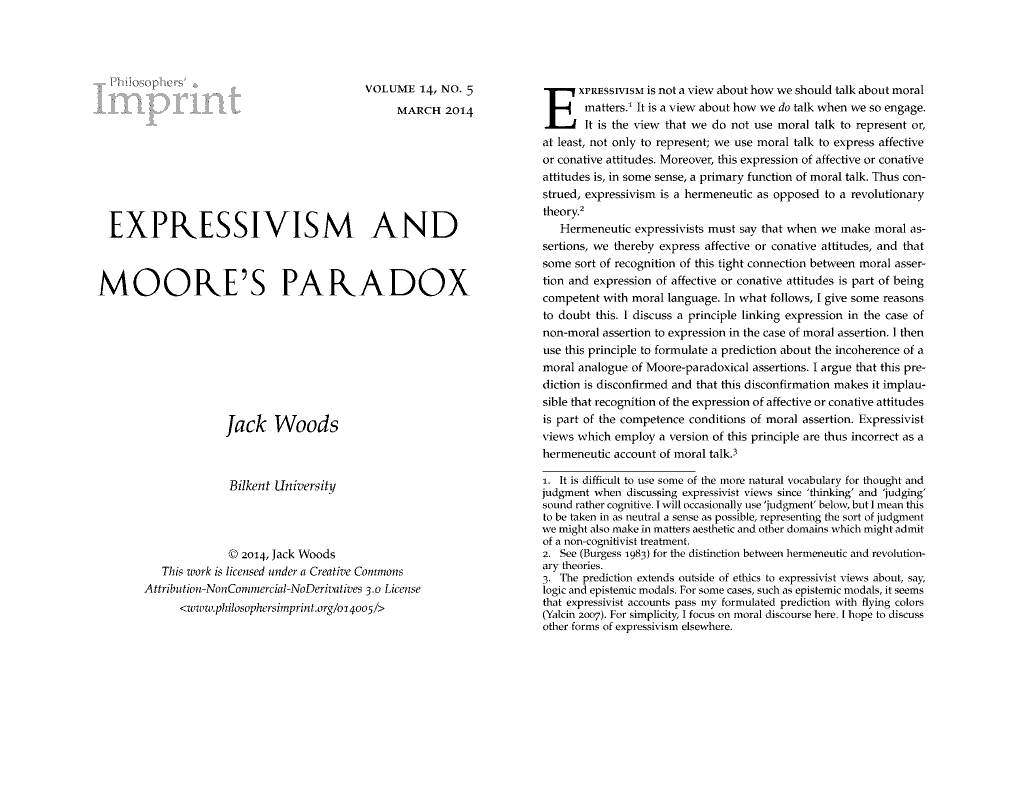Expressivism and Moore’s Paradox
Skip other details (including permanent urls, DOI, citation information): This work is licensed under a Creative Commons Attribution-NonCommercial-NoDerivatives 3.0 License. Please contact [email protected] to use this work in a way not covered by the license.
For more information, read Michigan Publishing's access and usage policy.
Abstract
I argue against expressivism as a descriptive account of moral language. I do this by leveraging features of the connection between ordinary assertion and belief to test the putative connection between moral assertion and various non-cognitive states. Expressivists explain the expression relation which obtains between sincere moral assertion and the conative or affective attitude thereby expressed by appeal to the relation which obtains between sincere assertion and thereby expressed belief. In fact, they often explicitly take these relations to be the same. If the relations really are identical and if expressivism is correct, we should find Moore-paradoxical constructions where we deny that we possess certain non-cognitive attitudes. We do not. Hence either the relations are distinct or expressivism is incorrect as a descriptive account of moral language. I favor the latter. A number of objections are canvassed and rejected.



